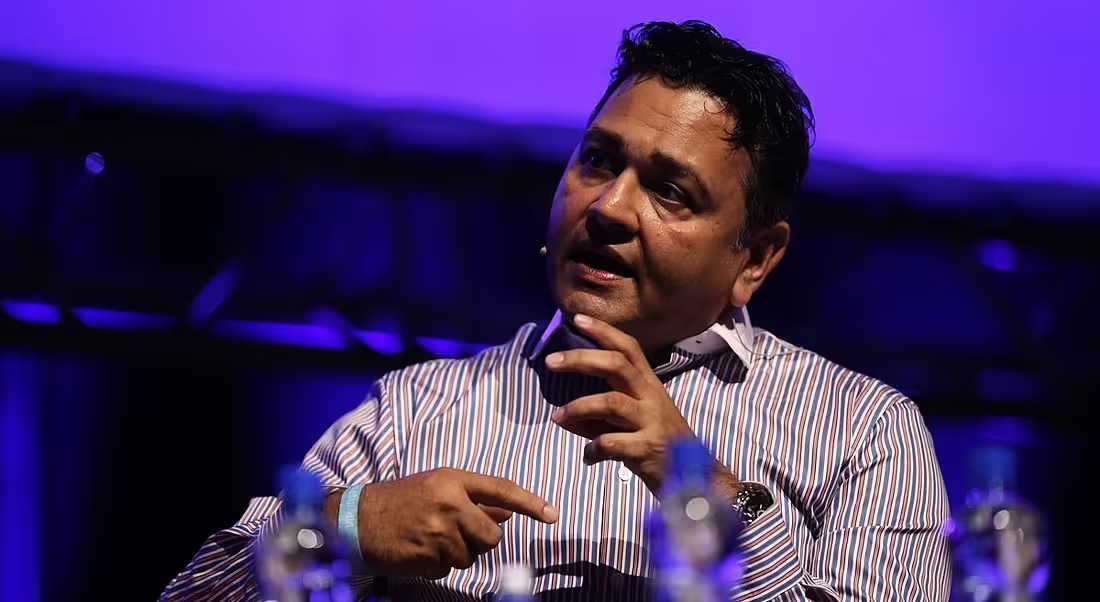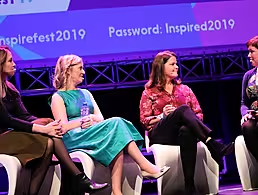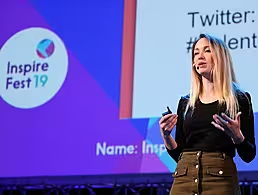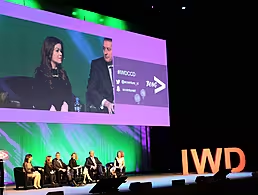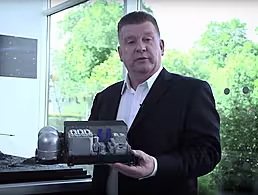In a presentation at Inspirefest 2015, Suraj Shah, the Intel She Will Connect Africa Programmes Manager, showed damning statistics on the underrepresentation of African women using technology, but said it is something that is gradually being changed.
As of now, there are 65m girls across the entire world who are not receiving an education, and, when we’re looking from the perspective of the whole world, women are vastly unrewarded for the amount of work that they do, despite the fact that 60pc of the world’s work and 50pc of the world’s food is produced by women, they still earn 10pc of the income.
This, Shah explained to the crowd at the Bord Gáis Energy Theatre in Dublin, does not have to be the case, and can be helped with the right training and encouragement to show that, by embracing the power of the internet, their lives can be changed immeasurably.
Not only that, but, Shah said, his company’s Women and the Web report found that if 600m women were to become engaged online, a developing country’s GDP could increase by as much as between US$13bn-US$18bn.
A means of empowering themselves
“We know for a fact that when [women] gain access to technology, they empower themselves and they empower their families,” Shah said, before following up with some more optimistic comments highlighting how, from their research, 70pc of women found it liberating being online, while 85pc said it gave them more freedom.
What is clear from Intel’s She Will Connect programme that encourages women to engage with technology, is that many of those women who participated had seen it as a boys-only pursuit, without realising the potential of what it could do to start their own businesses.
Looking at one girl in particular – Jessica from Lagos, Nigeria – Shah said she had dismissed initially the thought that she could use technology to help her with her desire to be hairdresser but, after joining the She Will Connect programme, she now uses social networks to promote her business and source cheaper products elsewhere online.
40,000 women and counting
One year after She Will Connect began, Shah said, they were able to train 40,000 women in Kenya and South Africa in computer literacy. “We’re looking to escalate this into the millions … using anything that can help them.”
What became clear from Intel’s work in countries like Nigeria, Kenya and South Africa, Shah said, was that across the board there was an enormous sense of community among the women participating.
“We interviewed 240 women in the space of two weeks, and not a single one of them did not have a plan that did not involve the community … this is where [She Will Connect] will succeed as we want to play more on the community spirit to get more women involved.”
Why is a man pushing for women’s empowerment?
On a parting note, Shah moved away from just discussing statistics, and looked at what, he says, is now the question that is asked of him the most: Why is a man pushing for women’s empowerment?
Recalling his first meeting with Uganda’s first lady, Janet Museveni, at an event encouraging the growth of women’s education, Shah was posed this question by another female minister of Uganda.
Before he could answer, Shah said, Museveni interrupted by saying: “Listen here, if he as a man is out here pushing for women’s education, you lot in this room have no excuse not to do your part.”
Inspirefest 2015 is Silicon Republic’s international event running 18-20 June in Dublin that connects sci-tech professionals passionate about the future of STEM with fresh perspectives on leadership, innovation and diversity.
This article was originally published at 12.07pm on 19 June 2015, it has since been updated with a video report.
